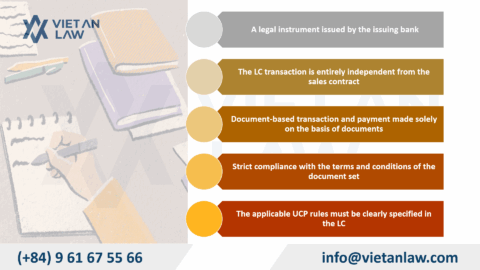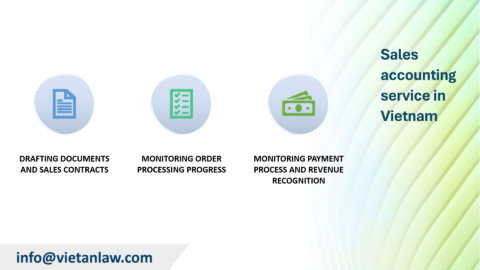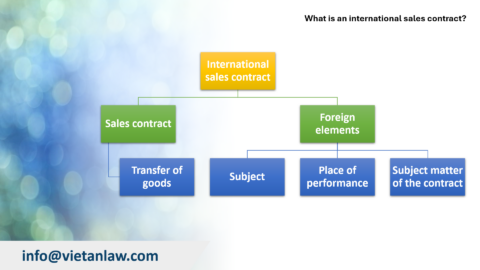Nowadays, promoting the development of international trade is an inevitable trend of all countries in the world. This makes international commercial representation contracts increasingly popular and widely used. So how to draft a contract? To answer customers’ questions, Viet An Law Firm offers an article on drafting international commercial representation contracts below.

In many countries, laws or legal documents have adjusted and determined the internationality of an international commercial contract based on the place of business of the trader. Accordingly, an international commercial contract is a commercial contract agreed upon by parties whose commercial headquarters are located in the territories of different countries.
Thus, we can give a general concept for all international commercial contracts as follows:
An international commercial contract is a contract agreed between traders whose commercial headquarters (business location) is located on the territory of different countries to establish, change, or terminate rights and obligations in the international trade business.
An international commercial representation contract is an agreement between the parties whereby the representative receives authorization from the principal to carry out international commercial activities in the name of the principal, according to the instructions of the principal, and receives remuneration for acting as a representative.
The form of the commercial representation contract will be expressed in the following forms:
However, for international commercial representation contracts, Vietnamese law stipulates that the mandatory form is in writing or other forms of equivalent value such as:
This is the basic provision of the contract, intended to determine the subject of the contract. Therefore, the parties need to provide accurate and specific information as follows:
This clause regulates the rights and obligations of the representative in the contract. The terms include focusing on the principal’s interests and acting responsibly and in good faith; the right to receive payment in the name or on behalf of the Principal requires prior written authorization from the Principal; strictly comply with the contract terms set forth by the principal; information for the Principal about the Representative’s activities.
The principal must comply with the following provisions: pay remuneration to the Representative according to regulations; must notify the Representative without delay of acceptance, rejection, or non-fulfillment of any offer/order transmitted by the Representative; Do not refuse offers/orders sent by the Representative except in certain cases; notify the Representative of any changes; provide the Representative, free of charge, with all information and documents necessary for the performance of the contract; keep the Representative informed of any communications with or to customers in the region.
The contract is considered to be in breach if one party fails to perform its obligations under the contract, for example, the Principal’s unfounded refusal to orders. The parties need to agree on cases that will be considered a breach of contract, leading to fines, compensation for damages, or termination of the contract.
If any provision is declared by a court or competent authority to be invalid or unenforceable in whole or in part. The Parties must agree to make all reasonable efforts to replace the invalid provisions with provisions that are valid under applicable law and that come closest to the original intent of the parties.
The contract stipulates terms on brand and ownership as follows:
Regarding exclusive rights, the principal grants exclusive rights to the Representative. This means that the Principal does not appoint other Representatives in the area (and in the promotional channels) during the term of this contract.
This clause provides for dispute resolution in the event of a dispute between the two parties. Terms include dispute resolution process, resolution deadline, and dispute resolution measures.
If a dispute arises from this contract, the parties must attempt to resolve it amicably. The parties must consider appointing an intermediary to assist in resolving the dispute. Neither party may bring any action in court or arbitration unless at least 30 days prior written notice is given to the other party.
Any dispute, controversy, or claim arising out of or in connection with the contract (including its conclusion, interpretation, performance, default, termination, or invalidity) must be finally resolved according to the procedural rules of the Vietnam International Arbitration Center (VIAC) by an Arbitral Tribunal.
The contract stipulates the contract period, contract termination, and consequences of contract termination as follows:
The contract needs to specify which international or national law will apply to this contract.
If the Representative has its place of business and/or carries out its activities within the European Union, the mandatory provisions of the EC Directive of 18 December 1986 shall also apply.
Clients who need advice on drafting international commercial representation contracts, please contact Viet An Law Firm for the best support.




